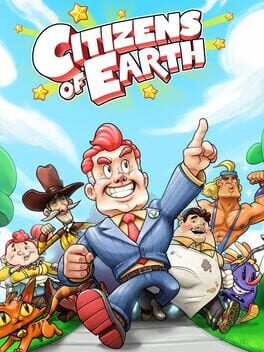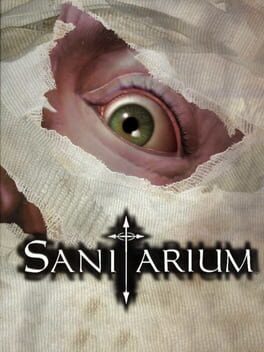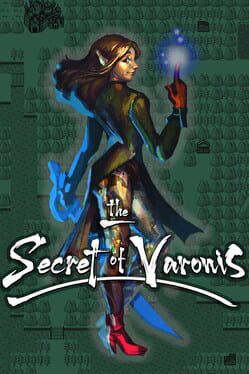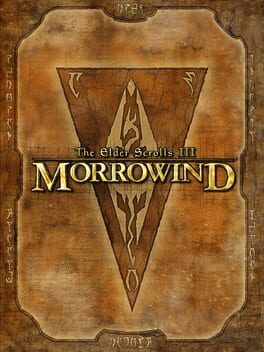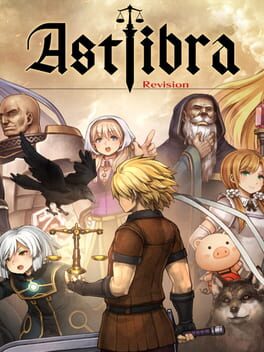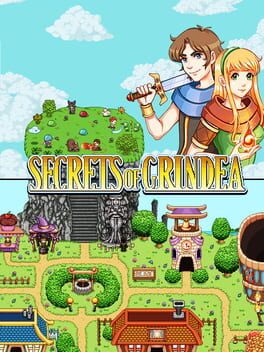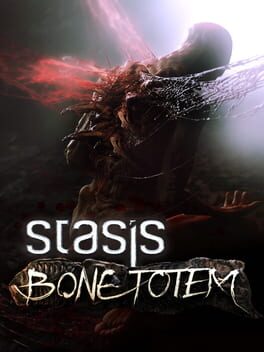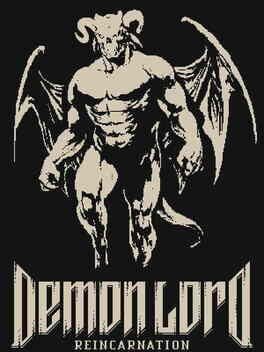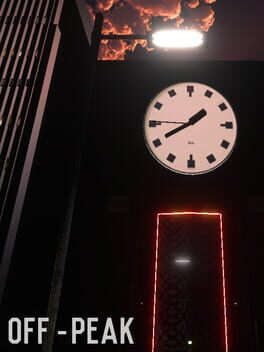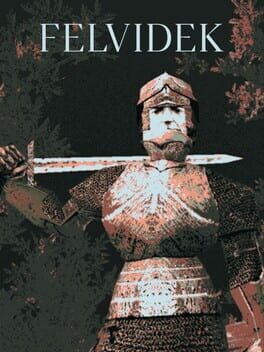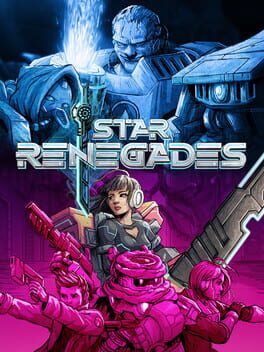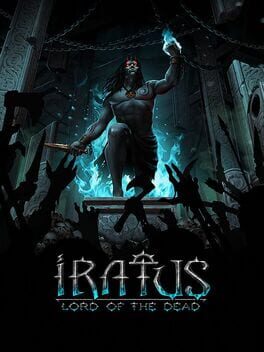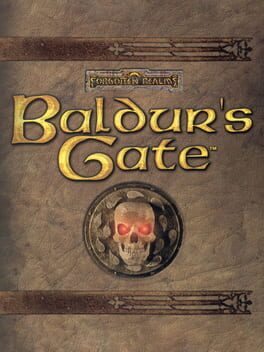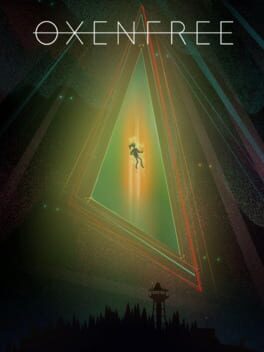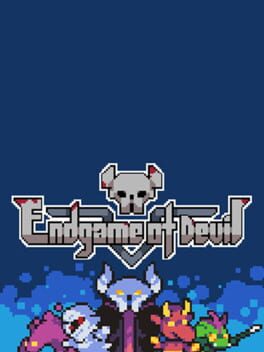jademonkey
2015
My brother got upset at me last week due to a misunderstanding and bought me Citizens of Earth as an apology. Totally and completely not necessary, but the gesture was absolutely appreciated - especially since I'd been having trouble committing to a game.
Citizens of Earth is a corny, quirky indie JRPG. There's a lot of clear Earthbound inspiration and homages, but it has more of a parody feel to it. You play as the Vice President of the Earth -- an absolute boob who got the position almost entirely because of his good hair. Strange things are happening on the Earth, and with some cajoling from your Mother and Brother, you set out to figure out what's happening.
It's a very goofy romp, which is honestly what I needed with all of the stress in my life right now. There's nothing really wowing here, but it made me smile fairly consistently. There's a huge roster of character to recruit, each feeling surprisingly unique within the games standard menu-based JRPG combat. All of the characters have at least some voice-acting, which is surprisingly well done for a budget title. The character interactions are very enjoyable as well.
The soundtrack was surprisingly good. One battle theme in particular, Otherworldly Battle, hit some chilled-out synthwave vibes and really wormed its way into my brain.
Unfortunately, Citizens of Earth really suffered from having too many encounters with basic enemies. JRPG combat is simply not interesting or even engaging when you're just selecting the same ability every round. So many otherwise good games are absolutely ruined by this. I legitimately think the average JRPG would be improved by removing all combat except for boss fights, and citizens of Earth is no exception. It only hit the point of being maddening in the final couple of zones here, so I stuck it out, but it's frustrating to have an otherwise good experience tarnished.
Anyway, I'd recommend Citizens to people who want some dumb humor and don't mind a bit of repetitive JRPG combat alongside it.
Citizens of Earth is a corny, quirky indie JRPG. There's a lot of clear Earthbound inspiration and homages, but it has more of a parody feel to it. You play as the Vice President of the Earth -- an absolute boob who got the position almost entirely because of his good hair. Strange things are happening on the Earth, and with some cajoling from your Mother and Brother, you set out to figure out what's happening.
It's a very goofy romp, which is honestly what I needed with all of the stress in my life right now. There's nothing really wowing here, but it made me smile fairly consistently. There's a huge roster of character to recruit, each feeling surprisingly unique within the games standard menu-based JRPG combat. All of the characters have at least some voice-acting, which is surprisingly well done for a budget title. The character interactions are very enjoyable as well.
The soundtrack was surprisingly good. One battle theme in particular, Otherworldly Battle, hit some chilled-out synthwave vibes and really wormed its way into my brain.
Unfortunately, Citizens of Earth really suffered from having too many encounters with basic enemies. JRPG combat is simply not interesting or even engaging when you're just selecting the same ability every round. So many otherwise good games are absolutely ruined by this. I legitimately think the average JRPG would be improved by removing all combat except for boss fights, and citizens of Earth is no exception. It only hit the point of being maddening in the final couple of zones here, so I stuck it out, but it's frustrating to have an otherwise good experience tarnished.
Anyway, I'd recommend Citizens to people who want some dumb humor and don't mind a bit of repetitive JRPG combat alongside it.
1998
I remember seeing Sanitarium at Best Buy when I was about 10 years old, thinking that people are into some weird things, and dismissing it out of hand. In the last few years, several horror point and click games made their way on to my all time favorites list -- Strangeland and Stasis: Bone Totem in particular. While looking for similar games, I read that both were inspired by Sanitarium, that weird game with the guy in full facial bandages I'd seen so many years before. I picked it up on Steam last year, and finally got around to playing it this week.
So how did it hold up?
It was as weird as child me thought, and a bit painful to play. It was also fascinating and worth the time.
You play as a patient in a sanitarium, who, of course, is questionably sane and suffers from amnesia. This isn't just any sanitarium, though. It's a gothic cathedral, castle of a sanitarium. As you regain memories, you alternate exploring the sanitarium and other worlds, each of which feels like it's own little B-movie horror flick, but all of which tie into the rather satisfying overarching narrative. The environments are consistently unsettling, and the subject matter always a bit gruesome, with some fairly heavy themes (e.g. child abuse). Saying much more about the story would be spoilers, so I'll just say I felt it had a strong conclusion.
The point and click puzzles weren't as bad as I was worried about, with most of the logic being fairly intuitive and even enjoyable. There were a few places where the pixel hunting really hurt the flow of the game. The biggest issue with the gameplay is the movement, though. Sanitarium's protagonist is one of the slowest beings ever to grace a video game. To make matters worse, there is a click and hold control scheme, in which he moves toward the cursor when you right click -- but only along the 8 cardinal directions and diagonals. I ended up resorting to a walkthrough for a couple of the pixel hunt situations since I simply could not work up the willpower to make another clunky lap around the current area.
Still, the game is absolutely worth a play for a modern audience. The story holds up well, the environments are still quite interesting, and the puzzles are enjoyable or easily bypassed with walkthrough. It's worth playing on its own merits, not just for the impact that its had on the horror adventure genre.
So how did it hold up?
It was as weird as child me thought, and a bit painful to play. It was also fascinating and worth the time.
You play as a patient in a sanitarium, who, of course, is questionably sane and suffers from amnesia. This isn't just any sanitarium, though. It's a gothic cathedral, castle of a sanitarium. As you regain memories, you alternate exploring the sanitarium and other worlds, each of which feels like it's own little B-movie horror flick, but all of which tie into the rather satisfying overarching narrative. The environments are consistently unsettling, and the subject matter always a bit gruesome, with some fairly heavy themes (e.g. child abuse). Saying much more about the story would be spoilers, so I'll just say I felt it had a strong conclusion.
The point and click puzzles weren't as bad as I was worried about, with most of the logic being fairly intuitive and even enjoyable. There were a few places where the pixel hunting really hurt the flow of the game. The biggest issue with the gameplay is the movement, though. Sanitarium's protagonist is one of the slowest beings ever to grace a video game. To make matters worse, there is a click and hold control scheme, in which he moves toward the cursor when you right click -- but only along the 8 cardinal directions and diagonals. I ended up resorting to a walkthrough for a couple of the pixel hunt situations since I simply could not work up the willpower to make another clunky lap around the current area.
Still, the game is absolutely worth a play for a modern audience. The story holds up well, the environments are still quite interesting, and the puzzles are enjoyable or easily bypassed with walkthrough. It's worth playing on its own merits, not just for the impact that its had on the horror adventure genre.
The Secret of Varonis is a spiritual successor to the original Gameboy SaGa trilogy (aka Final Fantasy Legend), having originally grown out of a fan game. The mechanics are essentially a combination of the first two SaGa games, with a decent amount of modern quality of life thrown in. The story is very similar to the first couple of games, seeing you climb a tower, visit worlds, and fight gods, though it's more focused and fleshed out than what you'd expect from a SaGa game. I actually rather enjoyed it by the end. While there's nothing particularly new here, everything is just a bit bigger, better, and smoother to play than the old games, creating an experience that I think even modern JRPG fans without nostalgia would have a great time with.
This review contains spoilers
I wrote this review 5 years ago for a different site... it's a bit longer than I'd normally post here, but whatever.
Morrowind launched as I was finishing my Freshman year of high school. Being a huge fan of RPGs, I'd followed Morrowind's development for a full year before it launched. In that time, I played and replayed the Daggerfall demo many times since my parents wouldn't allow me to buy a game with nudity in it (lmao). To say that I was hyped would be an understatement. It's the one and only game I've ever pre-ordered, and I even spent the summer saving for a new computer since I was only able to hit 10-15 FPS with the clunker I had when it released. I spent hundreds of hours exploring and trying out different types of characters in the early 2000s.
I returned to the game in 2007 and 2012 (after playing Oblivion and Skyrim), but just couldn't get properly invested and quit about 10-15 hours in each time. I finally came back for another round this month, and finished a 50ish hour playthrough, including the Main Quest, 5 guilds (Thieves, Mages, Morag Tong, Imperial Cult, House Hlaalu), and the main storylines of both expansions. This was my first time actually completing the main quest and Bloodmoon, though I'd made it a fair ways into both in the past. Here are my thoughts:
Story:
You're (possibly) a reincarnated ancient general recruited by a (sort of) Goddess/Demon to fulfill a prophesy and bring the end of a Tribunal of (formerly) mortal (sort of) Gods who usurped divine power from the heart of the (kind of) god responsible for the creation of Nirn and (big maybe) killed you in a previous life. Also, there's another dude who was with the Tribunal at the time and was totally corrupted into some sort of seductive vampire thing that's weaseling his way into people's dreams and making their faces fall off to make room for face tentacles. It's cool and trippy as heck. That said, it doesn't really provide much room for emotional involvement, which puts it behind a lot of its contemporary JRPGs and some CRPGs like Baldur's Gate 2 in my eyes. Still, though, rad stuff.
The Guild stories are mostly just, even for the time, boring fetch quests, and the vast majority of the miscellaneous quests around the world are a bit too simplistic to really get invested in.
Tribunal has some really neat concepts in the story, but it's one of the few games that I just can't accept the actions I'm forced to take. I don't want to help the dude that's clearly sending assassins after me or the very clearly crazy (former) goddess, dammit. I wanna help the guy who makes mecha dinosaurs.
Bloodmoon has a neat story, even if it's a bit frustrating to actually play. I like Norse mythology and re-enacting legendary deeds, so I was all on board there.
World:
It's an open-world game, so the quality of the world is pretty darn important. Luckily, Morrowind delivers some bombshells in this department. The cities are excellent in concept, ranging from pseudo-middle eastern architecture, to giant mushroom towers, to crabshell megastructures, to a series of big ol' floating cookie cutter buildings. Dungeons were also neat, especially the creepy and alien daedric dungeons, and the almost-steampunk dwemer ruins.
There's a lot of background everywhere you look, which really fleshes out this alien world you become a part of. Despite being fairly uninteresting, the guilds do give you a feeling of actually being a part of a fictional group and having to work your way to the top. Frankly, in 2001 or now, it was only the bizarre world and lore, along with the freedom, that really kept me in the game.
All of that said, the World would have been WAY better aesthetically if it weren't so damn gray and muddy looking in almost every region. The Ancestral Tombs and various caves were all way too similar to one another. More importantly, the NPCs were, by and large, very flat and uninteresting. Only a few NPCs were given any amount of back story, and far less were written with a unique voice to their dialogue. Despite all of the really cool concepts, the actual human aspect just wasn't there, generally speaking. I think the one liners common in JRPGs of the era did more to add character to the towns than most of the NPCs in Morrowind.
The books were amazing and weird and I love Michael Kirkbride.
Music:
Freaking Jeremy Soule put out some major bangers. I still get a bit of chill when I hear the drums and flutes at the beginning of the main theme. The epic scope of the main theme really gets you ready to go on an adventure, and the battle music perfectly builds tension. One of the all time greats, in my humble opinion, and I usually prefer stuff more in the range of Nier/Automata or FFXIII-2. Or I guess Devil May Cry to be compare it to something more contemporary.
Gameplay:
2002: Ugh, I guess I can live with this.
2019: Yikes.
Seriously, it's bad. No, a "dice roll" system does not make it feel like I'm playing a D&D campaign. Not even a little bit. It just feels bad. I literally remember wishing the gameplay was either Baldur's Gate style RTWP or properly action back in the day. The movement and animations are stiff as all hell, even for the time, creating a very clunky game feel. On top of that enemies mostly just walk straight at you and get stuck in the environment at some point or another, even with mods to improve combat AI.
Each and every mechanic is spectacular broken in some way. Why click "Bribe 10 Gold" 100 times when you can just make a "Charm 100 pts for 1 second" spell and bypass the whole ordeal. The unarmored skill didn't actually increase your armor like it showed (easily fixed with mods these days, of course). Hoo boy, alchemy was nuts with those fortify intelligence potions. 100% chameleon enchants so nothing ever sees you again? I shouldn't have to go grab some boots that turn your eyes off just to get around at a reasonable clip. Hyperlinking text Wikipedia-style is great for reading dry information, but not so much as a conversation system in a video game. The level up mechanics were bizarre and encouraged grinding misc skills just for stat points. The incentive to maximize endurance first was also obnoxious. While the text directions for quests were generally good enough, the 10% that weren't REALLY made wish there were quest markers. I can still get plenty immersed with a red dot on a map, but having to bring up a wiki because the game gives you outright incorrect instructions takes me right on out to frustration-ville.
Oh yeah, the spawn rate in Bloodmoon was crazy and felt like a bad mod.
With all of that said, the jump spell is awesome and one of my favorite ways to get around a game map ever. This may seem like a minor thing, but it was legitimately a major source of my enjoyment this playthrough.
Mods:
They're mostly necessary to fix the absolutely broken parts of the game. You can also make things look a lot prettier.
Unfortunately, I've never found any combination of mods that leads to me enjoying the actual gameplay. While some of the issues are able to be fixed with balancing mods, the overall game-feel just isn't good.
This time around, I played with Morrowind Rebirth (which actually fixed a lot of my issues with balance) and some mods to change the leveling system and such. I wanted to tackle at least some of Tamriel Rebuilt since a friend/former roommate of mine was an admin for the mod for over a decade. Unfortunately, I was running on fumes to just get through the main quest, and the expansions were already more content than I really wanted.
I think the mods for Oblivion and Skyrim are a lot more transformative, but each game had a 5-10x bigger playerbase than the previous, and obviously better technical assets to work with (even if the engine didn't change as much as people would have liked).
Final Thoughts:
Despite how big of a mess the game is, I managed to have fun with many playthroughs in the early 2000s, and it was great to get back to the game and FINALLY finish the main quest and expansion quests. I think I'm well and truly done playing the game at this point, since it took me 15 years to be ready for another go this time, but I will always love reading the bat-shit crazy lore.
Morrowind launched as I was finishing my Freshman year of high school. Being a huge fan of RPGs, I'd followed Morrowind's development for a full year before it launched. In that time, I played and replayed the Daggerfall demo many times since my parents wouldn't allow me to buy a game with nudity in it (lmao). To say that I was hyped would be an understatement. It's the one and only game I've ever pre-ordered, and I even spent the summer saving for a new computer since I was only able to hit 10-15 FPS with the clunker I had when it released. I spent hundreds of hours exploring and trying out different types of characters in the early 2000s.
I returned to the game in 2007 and 2012 (after playing Oblivion and Skyrim), but just couldn't get properly invested and quit about 10-15 hours in each time. I finally came back for another round this month, and finished a 50ish hour playthrough, including the Main Quest, 5 guilds (Thieves, Mages, Morag Tong, Imperial Cult, House Hlaalu), and the main storylines of both expansions. This was my first time actually completing the main quest and Bloodmoon, though I'd made it a fair ways into both in the past. Here are my thoughts:
Story:
You're (possibly) a reincarnated ancient general recruited by a (sort of) Goddess/Demon to fulfill a prophesy and bring the end of a Tribunal of (formerly) mortal (sort of) Gods who usurped divine power from the heart of the (kind of) god responsible for the creation of Nirn and (big maybe) killed you in a previous life. Also, there's another dude who was with the Tribunal at the time and was totally corrupted into some sort of seductive vampire thing that's weaseling his way into people's dreams and making their faces fall off to make room for face tentacles. It's cool and trippy as heck. That said, it doesn't really provide much room for emotional involvement, which puts it behind a lot of its contemporary JRPGs and some CRPGs like Baldur's Gate 2 in my eyes. Still, though, rad stuff.
The Guild stories are mostly just, even for the time, boring fetch quests, and the vast majority of the miscellaneous quests around the world are a bit too simplistic to really get invested in.
Tribunal has some really neat concepts in the story, but it's one of the few games that I just can't accept the actions I'm forced to take. I don't want to help the dude that's clearly sending assassins after me or the very clearly crazy (former) goddess, dammit. I wanna help the guy who makes mecha dinosaurs.
Bloodmoon has a neat story, even if it's a bit frustrating to actually play. I like Norse mythology and re-enacting legendary deeds, so I was all on board there.
World:
It's an open-world game, so the quality of the world is pretty darn important. Luckily, Morrowind delivers some bombshells in this department. The cities are excellent in concept, ranging from pseudo-middle eastern architecture, to giant mushroom towers, to crabshell megastructures, to a series of big ol' floating cookie cutter buildings. Dungeons were also neat, especially the creepy and alien daedric dungeons, and the almost-steampunk dwemer ruins.
There's a lot of background everywhere you look, which really fleshes out this alien world you become a part of. Despite being fairly uninteresting, the guilds do give you a feeling of actually being a part of a fictional group and having to work your way to the top. Frankly, in 2001 or now, it was only the bizarre world and lore, along with the freedom, that really kept me in the game.
All of that said, the World would have been WAY better aesthetically if it weren't so damn gray and muddy looking in almost every region. The Ancestral Tombs and various caves were all way too similar to one another. More importantly, the NPCs were, by and large, very flat and uninteresting. Only a few NPCs were given any amount of back story, and far less were written with a unique voice to their dialogue. Despite all of the really cool concepts, the actual human aspect just wasn't there, generally speaking. I think the one liners common in JRPGs of the era did more to add character to the towns than most of the NPCs in Morrowind.
The books were amazing and weird and I love Michael Kirkbride.
Music:
Freaking Jeremy Soule put out some major bangers. I still get a bit of chill when I hear the drums and flutes at the beginning of the main theme. The epic scope of the main theme really gets you ready to go on an adventure, and the battle music perfectly builds tension. One of the all time greats, in my humble opinion, and I usually prefer stuff more in the range of Nier/Automata or FFXIII-2. Or I guess Devil May Cry to be compare it to something more contemporary.
Gameplay:
2002: Ugh, I guess I can live with this.
2019: Yikes.
Seriously, it's bad. No, a "dice roll" system does not make it feel like I'm playing a D&D campaign. Not even a little bit. It just feels bad. I literally remember wishing the gameplay was either Baldur's Gate style RTWP or properly action back in the day. The movement and animations are stiff as all hell, even for the time, creating a very clunky game feel. On top of that enemies mostly just walk straight at you and get stuck in the environment at some point or another, even with mods to improve combat AI.
Each and every mechanic is spectacular broken in some way. Why click "Bribe 10 Gold" 100 times when you can just make a "Charm 100 pts for 1 second" spell and bypass the whole ordeal. The unarmored skill didn't actually increase your armor like it showed (easily fixed with mods these days, of course). Hoo boy, alchemy was nuts with those fortify intelligence potions. 100% chameleon enchants so nothing ever sees you again? I shouldn't have to go grab some boots that turn your eyes off just to get around at a reasonable clip. Hyperlinking text Wikipedia-style is great for reading dry information, but not so much as a conversation system in a video game. The level up mechanics were bizarre and encouraged grinding misc skills just for stat points. The incentive to maximize endurance first was also obnoxious. While the text directions for quests were generally good enough, the 10% that weren't REALLY made wish there were quest markers. I can still get plenty immersed with a red dot on a map, but having to bring up a wiki because the game gives you outright incorrect instructions takes me right on out to frustration-ville.
Oh yeah, the spawn rate in Bloodmoon was crazy and felt like a bad mod.
With all of that said, the jump spell is awesome and one of my favorite ways to get around a game map ever. This may seem like a minor thing, but it was legitimately a major source of my enjoyment this playthrough.
Mods:
They're mostly necessary to fix the absolutely broken parts of the game. You can also make things look a lot prettier.
Unfortunately, I've never found any combination of mods that leads to me enjoying the actual gameplay. While some of the issues are able to be fixed with balancing mods, the overall game-feel just isn't good.
This time around, I played with Morrowind Rebirth (which actually fixed a lot of my issues with balance) and some mods to change the leveling system and such. I wanted to tackle at least some of Tamriel Rebuilt since a friend/former roommate of mine was an admin for the mod for over a decade. Unfortunately, I was running on fumes to just get through the main quest, and the expansions were already more content than I really wanted.
I think the mods for Oblivion and Skyrim are a lot more transformative, but each game had a 5-10x bigger playerbase than the previous, and obviously better technical assets to work with (even if the engine didn't change as much as people would have liked).
Final Thoughts:
Despite how big of a mess the game is, I managed to have fun with many playthroughs in the early 2000s, and it was great to get back to the game and FINALLY finish the main quest and expansion quests. I think I'm well and truly done playing the game at this point, since it took me 15 years to be ready for another go this time, but I will always love reading the bat-shit crazy lore.
2022
The game starts out a bit rough, but man does it go places. I wish I were in the mood to write a full review, because there's a lot worth writing about here. Maddmike and NightTray cover most of what I'd have to say in their reviews, though, so I'll just mention a few things for now.
I think the basic combat mechanics are a bit clunky. There's a bit of a stiffness to attacking, dodging, and shielding that feels slightly off. Some enemies, particularly early on, have annoying tells for their attacks. I frankly didn't understand why people liked the combat at first. Then more systems opened. More and more new skills and spells became available. My opinion of the combat steadily rose until I was having an absolute blast by the midgame. There's nothing quite like it and I really love the emphasis on using i-frames from spells to dodge attacks -- it allows for a grant offensive pace. The underlying clunkiness never really goes away, but it becomes such a small part of the combat that it almost entirely stopped bothering me.
One other gameplay note: I started on hard and the enemies felt annoyingly spongy making the game rather grindy, so I bumped it down to normal. Normal was honestly a bit too easy, though. I only had to bother learning boss patterns when I challenged some content much earlier than intended. That didn't really impede my fun, though!
The story is absolutely over the top anime nonsense and I love it. The best comparison I can think of for the amount of escalation in the plot is Gurren Lagann. It just keeps getting bigger and crazier, but manages to stay meaningful and coherent. I also found the characters grew on me a ton over the course of the game despite some tropiness.
Definitely one of the best games I've played this year, and it's already been a great gaming year for me!
I think the basic combat mechanics are a bit clunky. There's a bit of a stiffness to attacking, dodging, and shielding that feels slightly off. Some enemies, particularly early on, have annoying tells for their attacks. I frankly didn't understand why people liked the combat at first. Then more systems opened. More and more new skills and spells became available. My opinion of the combat steadily rose until I was having an absolute blast by the midgame. There's nothing quite like it and I really love the emphasis on using i-frames from spells to dodge attacks -- it allows for a grant offensive pace. The underlying clunkiness never really goes away, but it becomes such a small part of the combat that it almost entirely stopped bothering me.
One other gameplay note: I started on hard and the enemies felt annoyingly spongy making the game rather grindy, so I bumped it down to normal. Normal was honestly a bit too easy, though. I only had to bother learning boss patterns when I challenged some content much earlier than intended. That didn't really impede my fun, though!
The story is absolutely over the top anime nonsense and I love it. The best comparison I can think of for the amount of escalation in the plot is Gurren Lagann. It just keeps getting bigger and crazier, but manages to stay meaningful and coherent. I also found the characters grew on me a ton over the course of the game despite some tropiness.
Definitely one of the best games I've played this year, and it's already been a great gaming year for me!
2015
I picked this up thinking it might scratch that Legend of Mana itch -- action RPG combat with lots of systems to play with. I should have looked into it a bit more, since it's not really that. It's a fairly straightforward Secret of Mana-style action RPG with a rather normal skill tree. There is a pet system, which is why I got my hopes up for something Legend of Mana-esque, but they just function as passive bonuses. Totally my fault for not doing enough research on that end. Still, I like action RPGs, so I didn't let that deter me.
Unfortunately, I really don't enjoy the writing. It has that very referential late 2000s internet humor that simply doesn't work for me. I find it to be a bit grating regularly, and it only made me laugh in a couple of spots.
This could all still be saved for me if the gameplay was excellent, but it was just alright. Certainly not bad, but the movement felt a bit stiff and I found most of the special abilities to be awkward to use or just not that exciting. I respecced a number of times, but just couldn't find a build that excited me.
The collectathon aspect of it is enjoyable and well done, if a bit grindy (as the games name alludes to). If I liked the combat a bit more, I could see hunting down all of the loot motivating me to complete the game.
All in all, it's not a terrible game, and I can see how some people may really enjoy it. I'm just having an 'ok' time at best, so after ~7 hours, I think I'll just move on.
Unfortunately, I really don't enjoy the writing. It has that very referential late 2000s internet humor that simply doesn't work for me. I find it to be a bit grating regularly, and it only made me laugh in a couple of spots.
This could all still be saved for me if the gameplay was excellent, but it was just alright. Certainly not bad, but the movement felt a bit stiff and I found most of the special abilities to be awkward to use or just not that exciting. I respecced a number of times, but just couldn't find a build that excited me.
The collectathon aspect of it is enjoyable and well done, if a bit grindy (as the games name alludes to). If I liked the combat a bit more, I could see hunting down all of the loot motivating me to complete the game.
All in all, it's not a terrible game, and I can see how some people may really enjoy it. I'm just having an 'ok' time at best, so after ~7 hours, I think I'll just move on.
2023
Stasis: Bone Totem is, without a doubt, my favorite horror adventure game. It nearly perfectly lands all of the important bits -- narrative, character moments, environment, and gameplay.
You play as Mac and Charlie, a husband and wife running a salvaging operation. They stumble upon a deep sea oil rig and decide to investigate, as it may give them a way out of their crippling debts. Of course, this is a sci-fi horror game, and everything on the rig is terrible, both man made and not. This set up quickly evolves into a very dense narrative with tons of well done twists and turns -- most of which are excellently foreshadowed through environmental story telling or logs that are optionally available to read.
The character development and overall characterizations in Bone Totem are a huge leap forward from the original Stasis. It's hard to talk about with avoiding spoilers, but I was very pleasantly surprised by how much the game made me care about some rather non-traditional characters. Bone Totem also grappled with quite a bit more philosophy than the original Stasis, though it's not quite as in your face about it as some of my other favorites like Primordia and The Swapper.
The environments you explore in Bone Totem are probably the best I've ever seen in an isometric game. There's excellent and disgusting detail throughout every screen of the game, with lighting that adds a ton to the mood. The sound design and music are all excellent, with the main characters having slightly different variations on the same themes for each section of the game -- a very nice touch. The voice acting is also top notch, making the big moments of the story hit that much harder. I'm very impressed with the presentation for an indie game with a team of this size.
It's tough to land the gameplay in adventure games, but Stasis: Bone Totem delivers here too. By and large, you have your expected set of environmental and item based puzzles, which, other than a small exception or two, are very well done and help you engage with the world. There are a couple of features that really push it to being at the top of the genre, though. First is the accessibility. You can always right click to 'ping' the surroundings, revealing all descriptions and interactable objects on the current screen -- no pixel hunting necessary, if you so choose. There are also optional hints available for the puzzles like many games. Each interactable object has a separate screen that pops up for the puzzle, and all items are used in these screens, which reduces the need to try each item on every object in the environment that happens in many adventure games. The second, and more important feature, is that you are playing as multiple main characters, with inventories that are connected via the 'quantum storage device'. This gives the game a very unique and fun flow, where, if you get stuck with one character, you can switch to another. Each character also has some unique way they can interact with objects or they environment -- breaking things down, combining items, or hacking. This is both nice for variety, and allowing you to have something else to do when you're getting annoyed with a particular puzzle.
Anyway, that's enough gushing about the game. If the game appeals to you at all -- give it a try. You may also come away with a new favorite.
You play as Mac and Charlie, a husband and wife running a salvaging operation. They stumble upon a deep sea oil rig and decide to investigate, as it may give them a way out of their crippling debts. Of course, this is a sci-fi horror game, and everything on the rig is terrible, both man made and not. This set up quickly evolves into a very dense narrative with tons of well done twists and turns -- most of which are excellently foreshadowed through environmental story telling or logs that are optionally available to read.
The character development and overall characterizations in Bone Totem are a huge leap forward from the original Stasis. It's hard to talk about with avoiding spoilers, but I was very pleasantly surprised by how much the game made me care about some rather non-traditional characters. Bone Totem also grappled with quite a bit more philosophy than the original Stasis, though it's not quite as in your face about it as some of my other favorites like Primordia and The Swapper.
The environments you explore in Bone Totem are probably the best I've ever seen in an isometric game. There's excellent and disgusting detail throughout every screen of the game, with lighting that adds a ton to the mood. The sound design and music are all excellent, with the main characters having slightly different variations on the same themes for each section of the game -- a very nice touch. The voice acting is also top notch, making the big moments of the story hit that much harder. I'm very impressed with the presentation for an indie game with a team of this size.
It's tough to land the gameplay in adventure games, but Stasis: Bone Totem delivers here too. By and large, you have your expected set of environmental and item based puzzles, which, other than a small exception or two, are very well done and help you engage with the world. There are a couple of features that really push it to being at the top of the genre, though. First is the accessibility. You can always right click to 'ping' the surroundings, revealing all descriptions and interactable objects on the current screen -- no pixel hunting necessary, if you so choose. There are also optional hints available for the puzzles like many games. Each interactable object has a separate screen that pops up for the puzzle, and all items are used in these screens, which reduces the need to try each item on every object in the environment that happens in many adventure games. The second, and more important feature, is that you are playing as multiple main characters, with inventories that are connected via the 'quantum storage device'. This gives the game a very unique and fun flow, where, if you get stuck with one character, you can switch to another. Each character also has some unique way they can interact with objects or they environment -- breaking things down, combining items, or hacking. This is both nice for variety, and allowing you to have something else to do when you're getting annoyed with a particular puzzle.
Anyway, that's enough gushing about the game. If the game appeals to you at all -- give it a try. You may also come away with a new favorite.
I love the idea of combining SaGa mechanics and blobbers, but this one is a bit too minimalistic for my tastes. There's no inventory/equipment, no influencing stat increases or skills/magic learned, and random encounters scale based on your stat increases. I think if magic was customizable as in most SaGa games and/or the random encounters didn't scale, I may have come out positive on this one. Unfortunately, as is, it feels too grindy for how little strategic interaction is available. I dropped the game after 4 hours.
2015
2024
Another cool little RPGmaker game.
Felvidek is set in 15th century Slovakia/Hungary, in small fiefdom beset by both the Hussite uprising and other, more nefarious, cultists. There's not a whole lot of depth in the period politics or anything, but there's enough to make it an engaging and unique backdrop for the story. The game is frequently quite funny, with the oddly realistic style and dry humor giving it a bit of a Monty Python feel. The old-timey dialogue is fun and enhances both the humor and immersion, though at times the sentence structures get a bit difficult to parse.
Felvidek not a big game, but exploration is fun and rewarding. Your characters only get more powerful through acquiring better equipment and stat enhancing food items, so checking out all of the hidden corners and looking for sidequests is heartily rewarded.
Unfortunately, the combat, despite featuring amusing animations, is about as basic of RPGmaker fare as you get. You have a very limited number of abilities and a low amount of uses of those abilities. To the games credit, you'll want to make use of your stuns and armor piercing abilities, but it's just not all that exciting. Despite running out of the 'tool' points that fuel your special abilities quickly, you can essentially always backtrack to a church after each fight and refill both those points and your HP. This means it's optimal to just always go all in and then run back for healing, which is a bit annoying. I'd have preferred if the game was a bit harder and just healed you to full after each fight in some fashion. Or, frankly, I think it would have been more enjoyable as an adventure game with a few puzzle fights. Either way, the game is fairly short, taking me just 5.5 hours while doing my best to explore everything, and combat wasn't overused. So, in the end, the milquetoast combat wasn't that much of an issue.
The soundtrack was a nice breath of fresh air, with some acoustic guitar, some prog-rockish tunes, and a bit of avant-garde electronica. Overall, I felt a lot of 70s vibes, which I absolutely love. Great stuff.
In the end, Felvidek didn't blow me away, but was definitely worth experiencing for the presentation and humor.
Felvidek is set in 15th century Slovakia/Hungary, in small fiefdom beset by both the Hussite uprising and other, more nefarious, cultists. There's not a whole lot of depth in the period politics or anything, but there's enough to make it an engaging and unique backdrop for the story. The game is frequently quite funny, with the oddly realistic style and dry humor giving it a bit of a Monty Python feel. The old-timey dialogue is fun and enhances both the humor and immersion, though at times the sentence structures get a bit difficult to parse.
Felvidek not a big game, but exploration is fun and rewarding. Your characters only get more powerful through acquiring better equipment and stat enhancing food items, so checking out all of the hidden corners and looking for sidequests is heartily rewarded.
Unfortunately, the combat, despite featuring amusing animations, is about as basic of RPGmaker fare as you get. You have a very limited number of abilities and a low amount of uses of those abilities. To the games credit, you'll want to make use of your stuns and armor piercing abilities, but it's just not all that exciting. Despite running out of the 'tool' points that fuel your special abilities quickly, you can essentially always backtrack to a church after each fight and refill both those points and your HP. This means it's optimal to just always go all in and then run back for healing, which is a bit annoying. I'd have preferred if the game was a bit harder and just healed you to full after each fight in some fashion. Or, frankly, I think it would have been more enjoyable as an adventure game with a few puzzle fights. Either way, the game is fairly short, taking me just 5.5 hours while doing my best to explore everything, and combat wasn't overused. So, in the end, the milquetoast combat wasn't that much of an issue.
The soundtrack was a nice breath of fresh air, with some acoustic guitar, some prog-rockish tunes, and a bit of avant-garde electronica. Overall, I felt a lot of 70s vibes, which I absolutely love. Great stuff.
In the end, Felvidek didn't blow me away, but was definitely worth experiencing for the presentation and humor.
2020
Sci-fi JRPG roguelite. Very cool neon pixel art graphics and solid electronic music. Excellent turn-based gameplay focusing heavily on manipulating a timeline and controlling the flow of battle. It's fairly similar to SaGa Scarlet Grace, but quite a bit less complicated and a fair deal easier -- I was able to win on my first run on normal without ever catching a whiff of danger. It still took me 7ish hours, though, so quite hefty for a roguelite. The characters say a lot of goofy sci fi things that are dumb but make me smile and plot was some interdimensional nonsense, but I'm a fan of that too. I'll come back to try out higher difficulties and new characters at some point, but I have other games calling to me for now.
I did a run of the tutorial difficulty and half of a run on standard, for ~15 hours of play time.
Iratus follows the Darkest Dungeon formula fairly closely, but instead of trying to survive eldritch horrors, you are the horror. There's a lot to like about the idea, and Iratus does a good enough job with the units and combat itself. In fact, I think it actually does a better job than Darkest Dungeons in those regards.
Unfortunately, nothing else is quite up to par. The voice-overs have none of Wayne June's charm, and are sometimes even outright grating or uncomfortable. The artwork is serviceable, but not particularly memorable. There are some issues with the English in a few ability or item descriptions, which occasionally make it difficult to determine how things function. It feels like they had a writer fluent in English handle most of the game, but then a different dev went back in and added a few things without putting them through the normal writing process.
Most damningly, Iratus misses out on one of the most necessary characteristics for a roguelike -- variance between runs. Once you unlock a unit type, you are always able to build it as long as you have the necessary resources, and you generally will. You'll generally even be able to make a new unit of the same level as the ones you've been using due to enemy brain drops, further reducing any feelings of uniqueness to a run. There are few truly random events, and they rarely have long lasting effects. I don't think I saw a single item in the second run that I hadn't received in the first. As far as I can tell, you'll fight the same bosses each time as well. Each run needs to feel substantially different for a roguelike to be worth it-- otherwise, I'd rather just play a game that's designed for a single playthrough. Games like ToME handle that mainly through having a massive variety in classes, and DCSS/Brogue through forcing you to react to what's available in a run. Iratus doesn't really do either.
If you enjoy the Darkest Dungeon formula and just want more of that style of combat, I think Iratus is worth a shot for you. Similarly, if you prefer less variance, you may get more out of the game. For me, there just wasn't quite enough run variety or charm to counterbalance the inherently frustrating nature of this style of game.
Iratus follows the Darkest Dungeon formula fairly closely, but instead of trying to survive eldritch horrors, you are the horror. There's a lot to like about the idea, and Iratus does a good enough job with the units and combat itself. In fact, I think it actually does a better job than Darkest Dungeons in those regards.
Unfortunately, nothing else is quite up to par. The voice-overs have none of Wayne June's charm, and are sometimes even outright grating or uncomfortable. The artwork is serviceable, but not particularly memorable. There are some issues with the English in a few ability or item descriptions, which occasionally make it difficult to determine how things function. It feels like they had a writer fluent in English handle most of the game, but then a different dev went back in and added a few things without putting them through the normal writing process.
Most damningly, Iratus misses out on one of the most necessary characteristics for a roguelike -- variance between runs. Once you unlock a unit type, you are always able to build it as long as you have the necessary resources, and you generally will. You'll generally even be able to make a new unit of the same level as the ones you've been using due to enemy brain drops, further reducing any feelings of uniqueness to a run. There are few truly random events, and they rarely have long lasting effects. I don't think I saw a single item in the second run that I hadn't received in the first. As far as I can tell, you'll fight the same bosses each time as well. Each run needs to feel substantially different for a roguelike to be worth it-- otherwise, I'd rather just play a game that's designed for a single playthrough. Games like ToME handle that mainly through having a massive variety in classes, and DCSS/Brogue through forcing you to react to what's available in a run. Iratus doesn't really do either.
If you enjoy the Darkest Dungeon formula and just want more of that style of combat, I think Iratus is worth a shot for you. Similarly, if you prefer less variance, you may get more out of the game. For me, there just wasn't quite enough run variety or charm to counterbalance the inherently frustrating nature of this style of game.
1998
I grew up with Baldur's Gate 2, but the first one never captured me. With a bunch of mods to expand the characters, round out some of the rough edges (good god were traps handled horribly), add some more variety to classes and itemization, and generally fix bugs, the game is completely alright. It'll never be a favorite of mine, but I do appreciate it these days.
2016
Glad I finally got around to this. It deserves all the indie-cred it got back when it came out. The characters and dialogue are excellent, and the story has a really cool mood to it. The music and visuals were also on point, creating an appropriately unnerving environment.
I only have two small complaints. Everything is a bit slow, which helps with the mood, but makes some of the walking and radio tuning get just a bit tiring by the end. The bigger complaint is about the repetition late in the game, but I'll leave it at that to avoid spoilers.
Still, a really cool little game that is definitely worth a few hours of your time if you like story/walking simulator games.
I only have two small complaints. Everything is a bit slow, which helps with the mood, but makes some of the walking and radio tuning get just a bit tiring by the end. The bigger complaint is about the repetition late in the game, but I'll leave it at that to avoid spoilers.
Still, a really cool little game that is definitely worth a few hours of your time if you like story/walking simulator games.
2023
Endgame of Devil is a fun little drafting based roguelike, most similar to Luck Be a Landlord. Instead of building a slot machine, you're building an army of evil. Every turn your army is randomly placed on a board along with heroes, who have to be defeated within a time limit. Let too many heroes through, and you lose. Additionally, at the end of every turn you can draft a new unit to your army, and at the end of each wave of heroes, you can choose a new passive for your army -- basically the same design as Luck.
With all that laid out, Endgame of Devil is similar enough to Luck Be a Landlord that you could rightfully call it a clone. However, I find it more fun. There's a smaller pool to draft from, and you get more rerolls and removal. It allows for much more control of what's happening, while still leaving you limited enough that you can't force the same playstyle every time. I also enjoy the aesthetic of building an army of lizard men more than making a slot machine to pay rent haha. The main downsides are that it's perhaps a bit too easy, and you do see the same builds a bit more than would be optimal. Still, I had fun for the full 9 hours it took me to complete the 20 difficulties the game offers.
With all that laid out, Endgame of Devil is similar enough to Luck Be a Landlord that you could rightfully call it a clone. However, I find it more fun. There's a smaller pool to draft from, and you get more rerolls and removal. It allows for much more control of what's happening, while still leaving you limited enough that you can't force the same playstyle every time. I also enjoy the aesthetic of building an army of lizard men more than making a slot machine to pay rent haha. The main downsides are that it's perhaps a bit too easy, and you do see the same builds a bit more than would be optimal. Still, I had fun for the full 9 hours it took me to complete the 20 difficulties the game offers.
